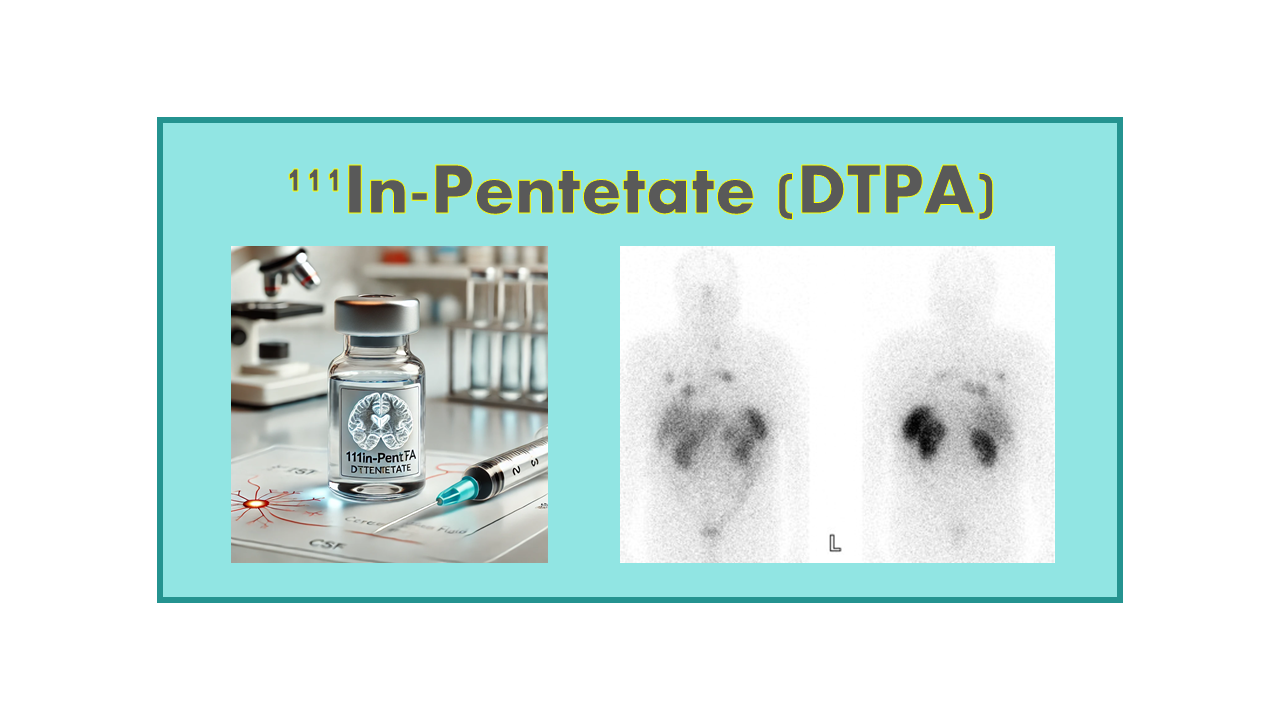
111In-Pentetate (DTPA)
December 15, 2024
Description
111In-Pentetate (DTPA) is a specialized generic formulation of radioactive indium used primarily for the diagnosis of cerebrospinal fluid (CSF) leaks. This sterile radiopharmaceutical is administered via intrathecal injection, typically through a lumbar puncture, allowing for the introduction of the tracer directly into the spinal fluid.
Clinical Applications
111In-Pentetate plays a crucial role in cisternography, a diagnostic procedure where the radiotracer is injected into the CSF via a lumbar puncture. This technique enables the detection and localization of CSF leaks, such as those that may occur in the sinus cavity. Additionally, it is utilized in the evaluation of ventriculo-peritoneal shunts (also known as LaVeen shunts), which are used to drain excess cerebrospinal fluid in conditions like hydrocephalus.
The mechanism of action for 111In-Pentetate is distinct in that it does not interact with receptors in the CSF, brain, or spinal cord cells. Instead, it relies on simple mechanical diffusion within the CSF. This passive diffusion allows for the visualization of CSF flow and leakage. The radioactive half-life of 111In aligns with the duration of observation needed for these diagnostic procedures, ensuring adequate imaging over time.
Availability
111In-DTPA is currently supplied by Mallinckrodt under the product name IN111-DTPA. Previously, it was also available from GE Healthcare, but they have since ceased production. As of 2020, the cost of a single dose of 111In-Pentetate in the United States ranges between $450 to $500.
Competition
The market for 111In-Pentetate is highly specialized, with no significant competition due to the limited scope of its clinical application. While other companies, such as IBA Molecular and GE Healthcare, previously manufactured 111In-DTPA, they have withdrawn from the market, likely due to low profitability and limited demand for this product. As a result, Mallinckrodt remains one of the few, if not the only, provider of this compound.
Comments
The future of 111In-Pentetate production is uncertain. Given the narrow indication and low market demand, the few remaining manufacturers may choose to discontinue production unless prices are increased to ensure sustainability. Without an increase in profitability, there is a significant risk that this essential diagnostic tool could become unavailable in the near future.